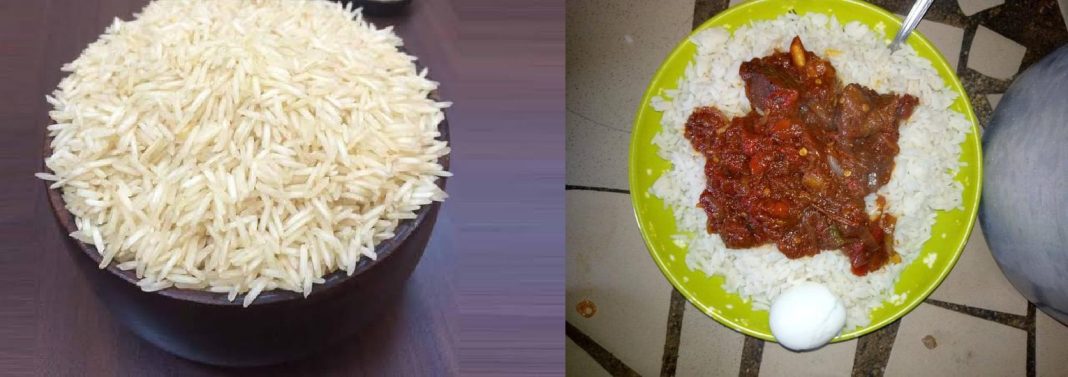Is basmati rice healthier than white rice?
The exact topic of this article first appeared on www.nimedhealth.com.ng
Basmati rice make a great addition to international cuisines. White rice, on the other hand is a common staple anywhere, even in most Nigerian homes. You may wonder which variety is the best? Which is healthier? Any difference between the two?
This article is written to answer any questions you may have of the two varieties. We will compare these popular rice varieties to enlighten and assist you with making informed decisions. We will address their nutritional differences.
Basmati rice
Basmati rice originates from South Asia. However, it is majorly grown in India and Pakistan. It’s a common staple for traditional cuisines in India. It can be eaten alongside stews, sauces, curries, meats, and other dishes. It comes in different colors: red, brown or white. Basmati rice are characterized by their long and slender grains with pointy edges. Their flavor distinct them as it comes off as nutty.
White Rice
White Rice, on the other hand, is simply milled grains whose brans and germs have been removed, and further processed. Categories of white rice sold at markets and stores could be medium or long grains.
Nutritional differences between Basmati rice and white rice
Whether you eat basmati rice or white rice. When it comes to nutritional values, there ae some differences you should know of. Let’s get to know their nutritional differences.
Calories content:
Basmati rice higher in calories content than white rice. It has about 160 calories per serving, while white rice has 103 calories per serving. Basmati rice is a good source of carbs for those who desire to gain weight, while for those trying to lose weight, should consume white rice more often.
Glycemic Index:
Although high in calories, it has a lower Glycemic Index (GI- 50-58), compared to white rice which has a glycemic index of 79-109. It’s a good meal source for anyone diagnosed of diabetes. Also, if you have concerns as regards your blood sugar levels, basmati rice is a good option.
Fiber:
Basmati rice has a higher fiber content as compared to white rice. A cup of basmati rice (any variety) is equivalent to 8 grams of fiber, whereas the same serving of white rice typically has about 0.7g of fiber which is less than a gram of fiber. Basmati rice, due to its high fiber content can aid digestion, and prevent constipation, as well as reduce the risks of Type II diabetes and some types of cancer. Their low fiber content may reduce the likelihood of having stomach pain and bloating.

Digestion:
When it comes to digestion, whole grains help with that due to the presence of fiber. However, it can be difficult if not prepared properly. Some people believe basmati rice needs to be soaked two hours before cooking to make it easily digestible. Whichever the method of preparation, basmati rice is easier to digest as it has more fiber content than white rice.
This can help prevent digestive issues like bloating, constipation, gas or indigestion. White rice, on the other hand, doesn’t need to be soaked, as the brans and germs have been removed already. This makes it also easy to digest.
Which is healthier: Basmati rice or White rice?
From the above, it is evident that both basmati rice and white rice have similar nutritional values. Basmati rice and white rice are naturally gluten-free grains healthy and safe for consumption. However, persons with celiac disease (wheat allergy) should be cautious on the type of rice bought at stores, as some could contain gluten. However, this depends on the production. Therefore, its important you choose organic varieties and read the labels before purchase.
Conclusion
Conclusively, both varieties are generally healthy and safe for consumption. However, the decision on which is healthier comes down to personal preferences and needs.
For instance, if you have concerns about your blood sugar levels, you should go for basmati rice, and if you’re trying to lose weight, you should go for white rice. These are factors that go into consideration, when deciding the one that’s healthier for you.
Notwithstanding, basmati rice and white rice are great additions to your storeroom.
Stella-maris Achumba




















